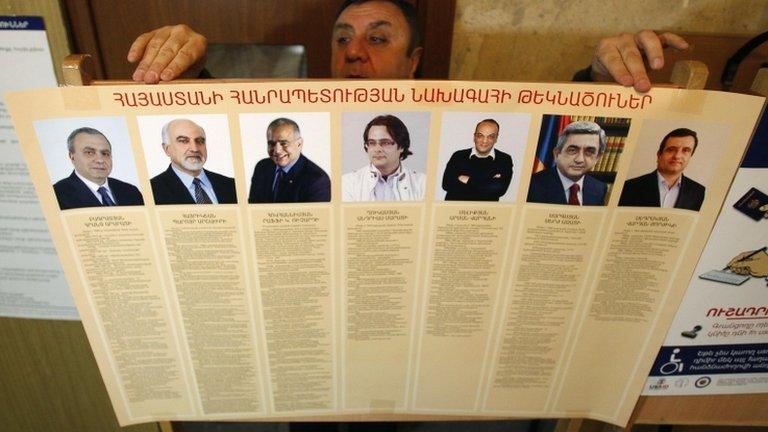Armenia parliament swears in new PM despite protests
- Published
Armenians protested again on Tuesday, a day after clashes with riot police
Armenia's National Assembly has sworn in a new prime minister after days of protests against him.
Demonstrators object to the former president, Serzh Sargsyan, becoming the new premier.
Opposition MP Nikol Pashinyan said the protests constitute a "non-violent velvet revolution".
"We must paralyse the entire state system and the power should pass to the people," he told protesters in the capital Yerevan.
"Serzh Sargsyan must see that he has no Armenia to rule in and no people to rule over."
Mr Pashinyan earlier urged protesters in Yerevan and in other cities to blockade state institutions.
Demonstrators in the capital proceeded to cordon off the interior ministry and the prosecutor's office, though police prevented them from entering the parliament where legislators confirmed Mr Sargsyan as prime minister.
People are also reportedly gathering to demonstrate in the cities of Gyumri and Vanadzor.
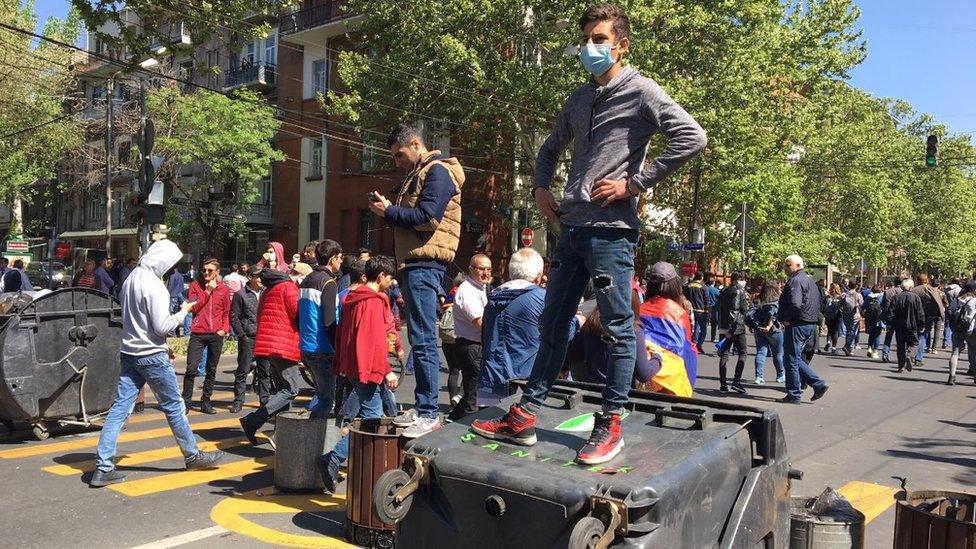
Traffic has been blocked by protesters in several roads in the capital
Local media report that before he was officially sworn in, Mr Sargsyan told parliament that under the new constitution the prime minister would be "under parliament's control and can be replaced for political reasons".
He reportedly said he could serve as a "shadow" premier, influencing government without taking office, but said that would be "a sign of weakness and desire to avoid responsibility".

At the scene
Rayhan Demytrie, BBC News Caucasus correspondent in Yerevan
Anti-government protesters continue to block several main roads in the capital, using benches and rubbish bins to stop the traffic.
The protesters have been chanting "Serzh the liar" about the ex-president, who in the past said that he had no intention of becoming the country's prime minister after the end of his second presidential term.
Many Armenians want to see a genuine change in their country but they feel that they are being deprived of that opportunity because the leadership remains the same.

Serzh Sargsyan was elected president of Armenia in 2008 and again in 2013, serving two five-year terms before stepping down.
However, following a 2015 constitutional referendum the country shifted from a presidential system to a parliamentary republic - relegating the presidency to a more ceremonial role.
The ex-president had formally stated he would "not aspire" for the prime minister position. But on Tuesday the country's parliament chose Mr Sargsyan for the post.
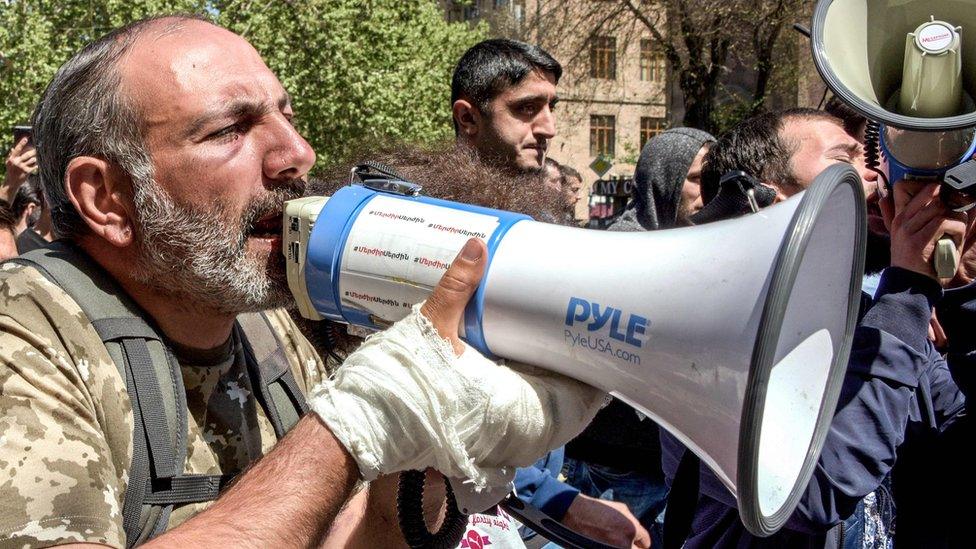
This is the fifth day of protests in Armenia
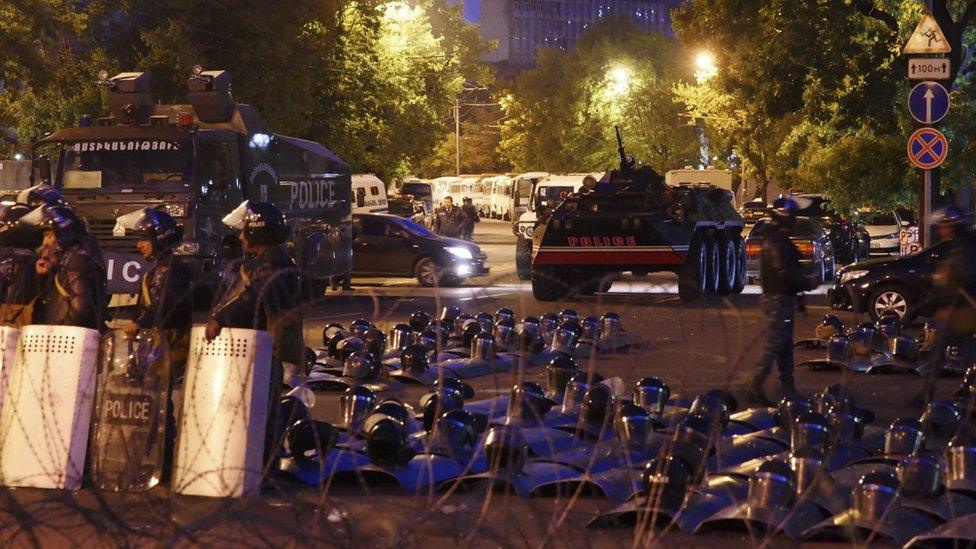
Police have been protecting the parliament building against the protesters
This is the fifth day of protests against what opposition groups are dubbing a "power grab" by the former leader.
About 60 protesters have been detained and charged by the police, with several dozen people requiring medical treatment - including Mr Pashinyan.
The election of Mr Sargsyan to the presidency in 2008 was met with demonstrations, with protesters alleging vote rigging. At least eight people died in clashes with the authorities.
- Published7 December 2015
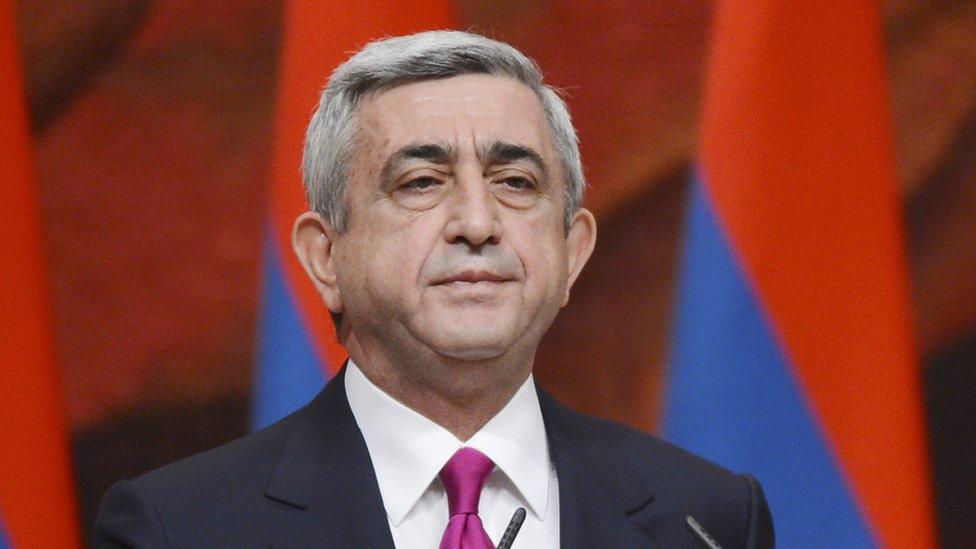
- Published19 February 2013
